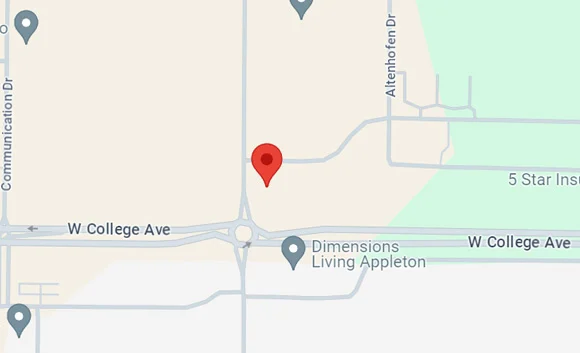Dog bites can result in serious injuries, emotional trauma, and steep medical expenses. In Wisconsin, if you’re bitten by someone else’s dog, you may wonder who is financially responsible and how to cover the cost of treatment. In many instances, the dog owner’s homeowners or renters insurance may cover your injuries, though the process can be complex.
This article breaks down how homeowners insurance applies to dog bite injuries in Wisconsin, what types of compensation may be available, and what to do if the insurer denies your claim or offers less than you deserve.
Wisconsin Dog Bite Laws: The Basics
Wisconsin has one of the strictest dog bite liability laws in the country. Under Wisconsin Statute § 174.02, dog owners are strictly liable for injuries caused by their dogs. This means:
- The victim does not need to prove that the dog had a history of aggression or that the owner was negligent.
- The owner is automatically responsible for the damages the dog causes.
In some cases, if the owner knew the dog had previously bitten someone or acted aggressively, the victim may be entitled to double damages.
Will Homeowners Insurance Cover the Dog Bite?
Most Standard Policies Do
In general, a homeowners insurance policy will cover dog bite liability as part of its personal liability protection. This coverage applies to injuries caused by the policyholder’s dog, irrespective of whether these injuries occur on the policyholder’s premises or elsewhere, such as in a park, on a sidewalk, or within another person’s residence.
If you were bitten by a dog and the owner has homeowners or renters insurance, you can typically file a claim against their policy for:
- Medical expenses
- Lost wages
- Pain and suffering
- Cosmetic or reconstructive surgery
- Permanent disability or scarring
Common Policy Limits
Most policies provide between $100,000 to $300,000 in liability coverage per incident. If your damages exceed that amount, the owner may be personally responsible for the remainder.
Some policies also cover medical payments (typically $1,000 to $5,000), which can help with smaller medical bills without needing to prove fault.
When Insurance Might Deny Coverage
While many claims are paid without issue, there are scenarios where the insurance company may refuse to pay:
- Excluded Breeds
Some insurers exclude coverage for certain dog breeds deemed “dangerous,” such as pit bulls, Rottweilers, or Doberman Pinschers. If the dog’s breed is on the policy’s exclusion list, the insurance company may deny the claim entirely.
- Previous Bites or Incidents
If the dog had previously bitten someone and the insurance company wasn’t informed, they may argue that the policyholder failed to disclose a known risk. This could lead to a denial based on misrepresentation.
- Lapsed or Cancelled Policy
If the dog owner didn’t maintain their policy or the coverage lapsed, there may be no active insurance to cover the incident.
What to Do After a Dog Bite in Wisconsin
Seek Medical Attention Immediately
Even if the wound seems minor, dog bites can lead to infections or nerve damage. Prompt medical care is essential for your health and for documenting the injury.
Identify the Dog and Its Owner
You’ll need the dog owner’s name, address, and ideally, their homeowners or renters insurance information. If you can’t get it at the scene, your attorney can help identify the responsible party later.
Report the Bite to Local Authorities
File a report with the local animal control agency or police department. This helps establish a formal record of the incident and may prompt an investigation.
Document Everything
Take photos of your injuries, torn clothing, the location of the bite, and any visible signs of the dog’s behavior. Save all medical records, bills, and correspondence with the dog owner or their insurer.
Contact a Personal Injury Attorney
Insurance companies may attempt to offer a quick settlement that doesn’t fully cover your losses. Before signing anything, speak with an experienced attorney who can evaluate your case and handle negotiations on your behalf.
What If the Dog Owner Doesn’t Have Insurance?
If there is no homeowners or renters insurance to cover the bite, you may still be able to pursue compensation by filing a personal injury lawsuit directly against the dog owner. In some situations, your own health insurance may cover initial medical treatment, but you could still be left with unpaid bills, lost income, or long-term consequences that should be addressed through legal action.
An attorney can help identify whether the dog owner has other assets or avenues of liability that may be available for recovery.
Can You Sue for a Dog Bite in Wisconsin?
Yes. If a dog bite results in significant injuries, scarring, infection, or emotional trauma, you can file a personal injury lawsuit. The lawsuit may seek damages for:
- Emergency and long-term medical treatment
- Lost income from missed work
- Physical pain and suffering
- Mental anguish and emotional distress
- Costs of surgery or rehabilitation
- Long-term scarring or disfigurement
In accordance with Wisconsin’s strict liability laws, it is unnecessary to demonstrate that the dog had a history of aggression. It suffices to establish that the dog caused your injuries and that the defendant was the owner of the dog.
How Lindner Law Can Help
Dog bite injuries can be both physically and emotionally scarring. At Lindner Law, we understand how to deal with insurance companies and how to build strong cases under Wisconsin’s dog bite laws. Our team can:
- Investigate the incident and identify all liable parties
- Obtain the dog owner’s insurance information
- Calculate the full extent of your damages
- Handle negotiations with insurers
- File a lawsuit if necessary
We offer free consultations and work on a contingency fee basis, which means you pay nothing unless we win your case.
Contact Us Today
If you or your child was bitten by a dog in Wisconsin, don’t let the insurance company minimize your claim. Reach out to Lindner Law to learn your rights and pursue the compensation you need to heal.














